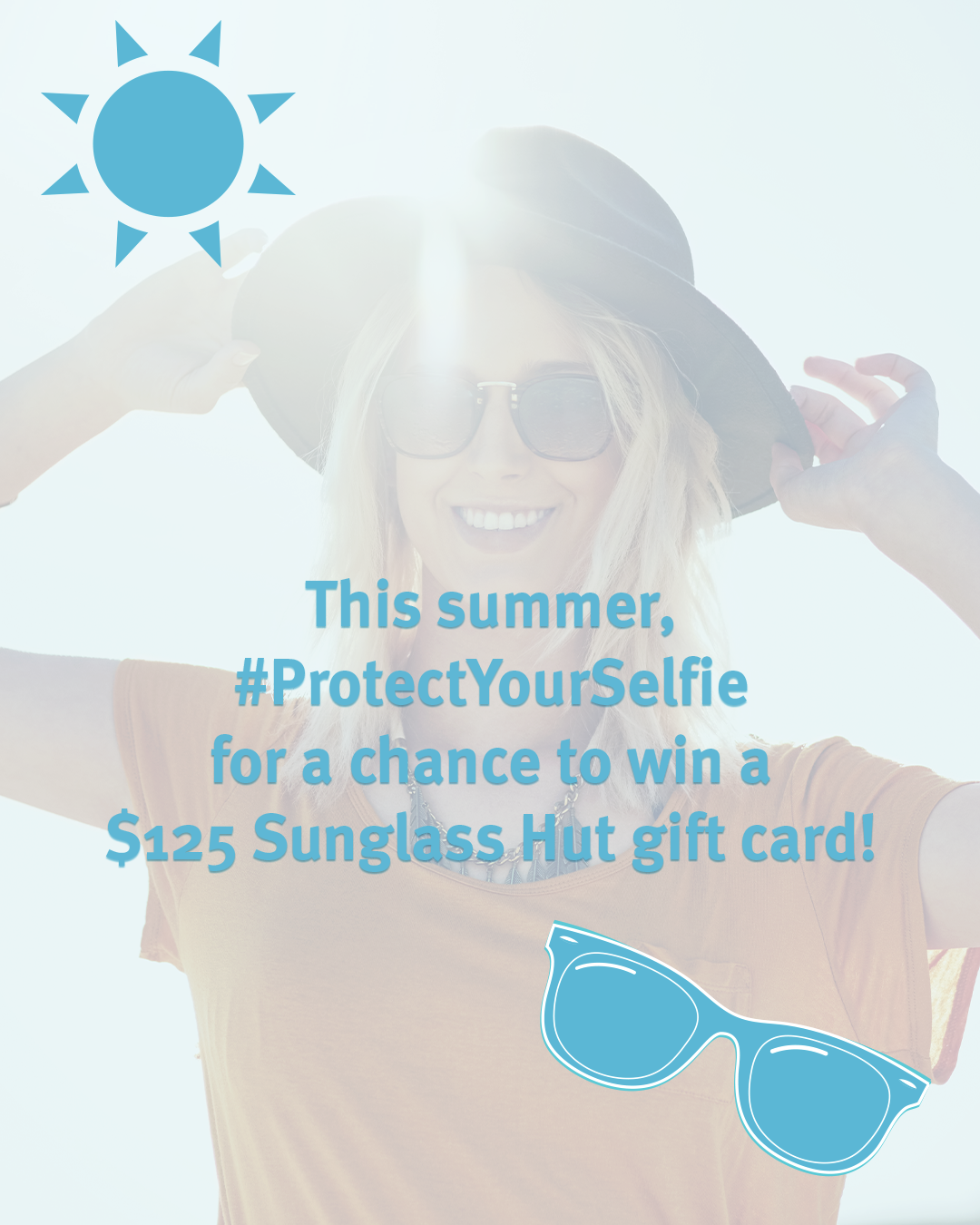Summer is in full swing! With school out for the year and summer vacations on the calendar, there’s a lot to look forward to this time of year.
But summertime also means an increased risk of sun damage, heat-related illnesses and other seasonal ailments.
Here are some of the most common summer safety concerns and what you can do to address them.
Stay safe in the sun
As we expose more of our skin during the summer, we are also exposing ourselves to ultraviolet (UV) radiation from the sun, which damages skin cells.
Sunburns significantly increase the risk of developing skin cancer. In fact, more than five sunburns as a child can double your risk of developing skin cancer later in life. A suntan also increases your risk of skin cancer, the most serious of which is melanoma.
It’s important to protect your skin and eyes all year long, but especially in the summer, when UV rays tend to be stronger.
Wear UV-blocking sunglasses to protect your eyes and the sensitive skin around them. Use a broad-spectrum sunscreen with a sun protector factor (SPF) of at least 30, which will screen out 97 percent of the sun’s ultraviolet B (UVB) rays as well as protect against ultraviolet A (UVA) rays. Apply approximately two tablespoons of sunscreen 30 minutes before going outside. Reapply every two hours, especially if swimming or sweating.
Consider limiting your time in direct sunlight, especially between 10 am and 4 pm, when UV light is strongest.
For more summer safety tips, visit www.askAAMC.org/sunsafety.

Enter our Instagram contest, and help us spread the word about the importance of sun safety!
Beware of heat exhaustion and heat stroke
Outdoor activity can lead to heat exhaustion, one of the most common conditions kids experience in the summer. The signs include severe thirst, nausea, fast and shallow breathing, headaches, muscle pain and cool, clammy skin. If your child is showing signs of these symptoms, immediately bring them somewhere cooler, remove excess clothing, encourage them to drink cool fluids and call your doctor.
If left untreated, heat exhaustion can turn into heat stroke, which is extremely serious. Symptoms include a pounding headache, dizziness and light-headedness, red, hot, dry skin, cramps or muscle weakness, rapid, shallow breathing, nausea, vomiting, confusion and unconsciousness. If you think someone has heat stroke, call 911 immediately. While you wait for medics to arrive, work to cool the person down by moving them to a shaded area, fanning them and cooling their skin with water.
You can prevent heat exhaustion by making sure your child is drinking water early and often, especially if they are playing outside in the heat.
Be prepared when traveling
Nothing can spoil your vacation like getting sick or injured. But if this does happen, it helps to be prepared.
If you’re older or have chronic health issues, see your doctor four to six weeks before your trip to make sure it’s safe for you to travel. Check to make sure your vaccinations are up to date, and make a list of your current medications and allergies. Include the names and phone numbers of your doctors and your pharmacy. Remember to bring a note on your doctor’s letterhead if you are taking controlled substances or injectable medications. You should also program health information, including medical conditions and emergency contacts, into your phone (both Apple and Android products have built-in apps for this).
If you have a history of heart disease, ask your cardiologist to give you a wallet-sized version of your latest electrocardiogram (EKG). Over-the-counter medicines, including ibuprofen and a thermometer, should also be a part of your travel kit.
Don’t let illness put a damper on your summer activities. Following these safety tips will help you have a relaxing, fun and, most importantly, healthy summer.
Authors
 Joanne Ebner is a cancer prevention program manager at Anne Arundel Medical Center. You can reach her office at 443-481-5366.
Joanne Ebner is a cancer prevention program manager at Anne Arundel Medical Center. You can reach her office at 443-481-5366.
 David Afzal, DO, is a family medicine physician with Anne Arundel Medical Group (AAMG) Waugh Chapel Family Medicine. To find an AAMG doctor in your area, visit MyAAMG.org.
David Afzal, DO, is a family medicine physician with Anne Arundel Medical Group (AAMG) Waugh Chapel Family Medicine. To find an AAMG doctor in your area, visit MyAAMG.org.

Mike Remoll, MD, is the medical director of the Emergency Department at Anne Arundel Medical Center.


 Joanne Ebner is a cancer prevention program manager at Anne Arundel Medical Center. You can reach her office at 443-481-5366.
Joanne Ebner is a cancer prevention program manager at Anne Arundel Medical Center. You can reach her office at 443-481-5366.




